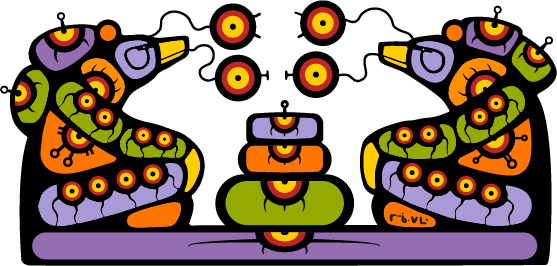The Importance of Language
My name is Holly Toulejour and I am a Dene woman from La Loche, Saskatchewan. I grew up in La Loche and left to study to become a Social Worker. I have worked in my home community and then returned to the south for more educational opportunities. I recently graduated from the University of Victoria with a Masters in Social Work. The coolest thing about me is that I am a mom to Kiedis Hayden who is 14 and Maddie Zoe who is 7. We live in Prince Albert. The second coolest thing about me is that I am a fluent Dene speaker. English is my second language and I am so proud to say this. Dene was spoken in every household when I was growing up. The school did not offer any instructions in Dene; it was strictly English and lacked Dene content. This has improved since.
“This project has reminded me of the privilege I have as a Dene speaker to be able to connect to family and community and self awareness as a Dene person.”
This project has reminded me of the privilege I have as a Dene speaker to be able to connect to family and community and self awareness as a Dene person. Your language is connected to your identity and well-being. As a Mental Health Therapist I see the value of knowing your language. Language is the ultimate protective factor in my eyes because it is tied to our identity as Dene people.
This project was important for me to be a part of because it highlights the successes of Dene Language Teachers. The current education system measures cognitive abilities based on Western ways of knowing. These Dene Teachers highlighted in these podcasts show that as Dene speakers we can excel in both worlds. We can still be successful in academics even as language speakers. Some people view progress as succeeding in the Western world but as Dene people we need the language and culture to thrive and to maintain mental wellbeing.
When students are trained in their language as we have witnessed in Dene Immersion programs much like French Immersion programs, cognitive levels can actually score above average even when measured with Western based assessment tools.
What I hope for listeners when they hear the stories shared in this podcast is to be inspired to learn their Indigenous language. As a Dene speaker I feel ten feet tall knowing I can speak a language that is often referred to as the third hardest language in the world to learn. I was inspired by the Dene Teachers from my home community. It has really sparked a sense of pride and hopes that we can revitalize this language because in all honesty there are less Dene language speakers today than even five or ten years ago. We need to do more than talk about language revitalization.
We have access to many free resources on YouTube and Indigenous language apps, and if we are lucky we can sit with Elders to learn about the Dene culture and language. We owe it to our children to pass on this language that our ancestors have carried for centuries. Our language has survived residential schools and other factors that have instilled shame for speaking Dene in public. I remember asking a couple girls outside the La Loche Community School who were outside during school hours why they weren't in class and they responded "we don't need Dene to get a job". I was offended and felt sad for them because they did not see the value of the Dene language. I have been offered jobs because I speak Dene. I feel that it is advantageous when you can speak two languages not only intellectually but also on a spiritual level.
Holly
Mahsi.


